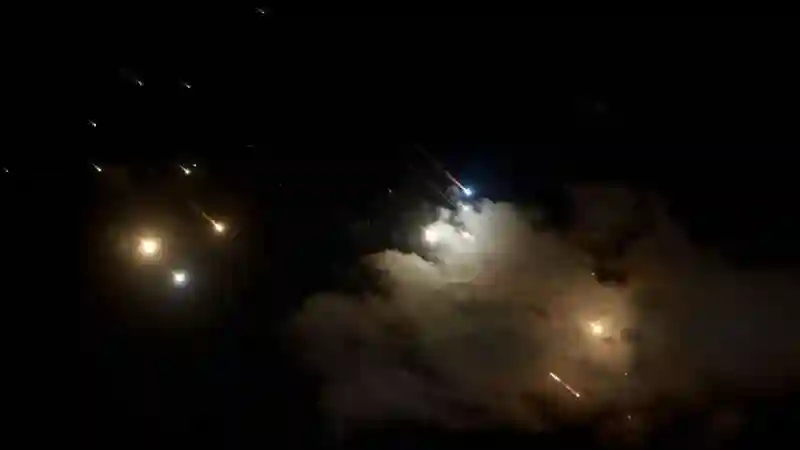Iran has reportedly launched over 180 missiles towards Israel, escalating fears of a regional war in the Middle East.
According to BBC, millions of people rushed to shelters before explosions lit up the skies over Tel Aviv and Jerusalem, with at least one fatality in Jericho due to falling debris.
Air raid sirens sounded all across Israel at around 7:30 PM local time (4:30 PM GMT) on Tuesday, as the Israeli Defence Forces (IDF) warned missiles had been launched from Iran.
Israeli Prime Minister Benjamin Netanyahu stated that Iran has made a “big mistake” and will face consequences. The Israel Defense Forces (IDF) reported that most missiles were intercepted.
Iranian state media claimed 200 missiles were fired, including hypersonic weapons, while the Islamic Revolutionary Guard Corps said the attack was in retaliation for the recent killings of the leaders of Hezbollah and Hamas.
US President Joe Biden said the Iranian missile attack appeared to have been “defeated and ineffective”.
The US Department of Defense confirmed its forces had helped shoot down missiles in support of Israel.
UN Secretary-General Antonio Guterres called for a ceasefire, while allies like the UK, France, Japan, and Australia expressed support for Israel.
Videos on social media captured streams of light from missiles flying over Israel, along with smoke from interceptions or detonations.
After about an hour, the IDF announced that people could leave shelters, stating there were no further aerial threats from Iran.
IDF spokesman Rear Admiral Daniel Hagari confirmed that a few missiles hit central and southern Israel. He said:
The majority of the incoming missiles were intercepted by Israel and a defensive coalition led by the United States.
Iran’s attack is a severe and dangerous escalation. There will be consequences.
Our defensive and offensive capabilities are at the highest levels of readiness. Our operational plans are ready.
We will respond wherever, whenever, and however we choose, in accordance with the directive of the government of Israel.
The missile barrage followed an Israeli invasion of southern Lebanon aimed at targeting Hezbollah, amidst a backdrop of increased hostilities since the war with Hamas began.
Speaking on Wednesday, Iran’s chief of staff Maj Gen Mohammad Bagheri told state TV that it would hit infrastructure across Israel if it decides to strike back.
Iran’s Islamic Revolutionary Guard Corps (IRGC) claimed to have targeted unspecified “sensitive security and military” sites in retaliation for the killing of Hamas leader Ismail Haniyeh.
They described the missile barrage as a legitimate act of self-defence. The attack was also in response to an Israeli airstrike that killed Hezbollah leader Hassan Nasrallah.
Iranian state media later reported that missiles struck multiple Israeli air bases, tanks in Gaza, and gas facilities in Ashkelon.
This occurred shortly after a US official indicated that Iran was preparing to launch missiles.
US National Security Adviser Jake Sullivan later said there was no known damage to aircraft or strategic military assets in Israel.
He concluded that, based on current information, the missile attack appeared to have been “defeated and ineffective.”
The conflict is rooted in a broader struggle involving various Iranian-backed groups across the Middle East, opposing US and Israeli interests.
In April, Iran launched over 300 drones and missiles at Israel in retaliation for an attack on its consulate in Syria that killed several commanders.
Most of the missiles were intercepted by Israel and its allies, resulting in only minor damage to an air base in southern Israel.
In response, Israel targeted an Iranian air base with its own missile strike, amid calls for restraint from Western nations.
More: Pindula News

